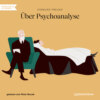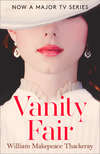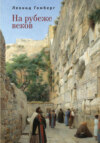Czytaj książkę: «Night and Day»
CHAPTER I
It was a Sunday evening in October, and in common with many other young ladies of her class, Katharine Hilbery was pouring out tea. Perhaps a fifth part of her mind was thus occupied, and the remaining parts leapt over the little barrier of day which interposed between Monday morning and this rather subdued moment, and played with the things one does voluntarily and normally in the daylight. But although she was silent, she was evidently mistress of a situation which was familiar enough to her, and inclined to let it take its way for the six hundredth time, perhaps, without bringing into play any of her unoccupied faculties. A single glance was enough to show that Mrs. Hilbery was so rich in the gifts which make tea-parties of elderly distinguished people successful, that she scarcely needed any help from her daughter, provided that the tiresome business of teacups and bread and butter was discharged for her.
Considering that the little party had been seated round the tea-table for less than twenty minutes, the animation observable on their faces, and the amount of sound they were producing collectively, were very creditable to the hostess. It suddenly came into Katharine’s mind that if some one opened the door at this moment he would think that they were enjoying themselves; he would think, “What an extremely nice house to come into!” and instinctively she laughed, and said something to increase the noise, for the credit of the house presumably, since she herself had not been feeling exhilarated. At the very same moment, rather to her amusement, the door was flung open, and a young man entered the room. Katharine, as she shook hands with him, asked him, in her own mind, “Now, do you think we’re enjoying ourselves enormously?”… “Mr. Denham, mother,” she said aloud, for she saw that her mother had forgotten his name.
That fact was perceptible to Mr. Denham also, and increased the awkwardness which inevitably attends the entrance of a stranger into a room full of people much at their ease, and all launched upon sentences. At the same time, it seemed to Mr. Denham as if a thousand softly padded doors had closed between him and the street outside. A fine mist, the etherealized essence of the fog, hung visibly in the wide and rather empty space of the drawing-room, all silver where the candles were grouped on the tea-table, and ruddy again in the firelight. With the omnibuses and cabs still running in his head, and his body still tingling with his quick walk along the streets and in and out of traffic and foot-passengers, this drawing-room seemed very remote and still; and the faces of the elderly people were mellowed, at some distance from each other, and had a bloom on them owing to the fact that the air in the drawing-room was thickened by blue grains of mist. Mr. Denham had come in as Mr. Fortescue, the eminent novelist, reached the middle of a very long sentence. He kept this suspended while the newcomer sat down, and Mrs. Hilbery deftly joined the severed parts by leaning towards him and remarking:
“Now, what would you do if you were married to an engineer, and had to live in Manchester, Mr. Denham?”
“Surely she could learn Persian,” broke in a thin, elderly gentleman. “Is there no retired schoolmaster or man of letters in Manchester with whom she could read Persian?”
“A cousin of ours has married and gone to live in Manchester,” Katharine explained. Mr. Denham muttered something, which was indeed all that was required of him, and the novelist went on where he had left off. Privately, Mr. Denham cursed himself very sharply for having exchanged the freedom of the street for this sophisticated drawing-room, where, among other disagreeables, he certainly would not appear at his best. He glanced round him, and saw that, save for Katharine, they were all over forty, the only consolation being that Mr. Fortescue was a considerable celebrity, so that to-morrow one might be glad to have met him.
“Have you ever been to Manchester?” he asked Katharine.
“Never,” she replied.
“Why do you object to it, then?”
Katharine stirred her tea, and seemed to speculate, so Denham thought, upon the duty of filling somebody else’s cup, but she was really wondering how she was going to keep this strange young man in harmony with the rest. She observed that he was compressing his teacup, so that there was danger lest the thin china might cave inwards. She could see that he was nervous; one would expect a bony young man with his face slightly reddened by the wind, and his hair not altogether smooth, to be nervous in such a party. Further, he probably disliked this kind of thing, and had come out of curiosity, or because her father had invited him – anyhow, he would not be easily combined with the rest.
“I should think there would be no one to talk to in Manchester,” she replied at random. Mr. Fortescue had been observing her for a moment or two, as novelists are inclined to observe, and at this remark he smiled, and made it the text for a little further speculation.
“In spite of a slight tendency to exaggeration, Katharine decidedly hits the mark,” he said, and lying back in his chair, with his opaque contemplative eyes fixed on the ceiling, and the tips of his fingers pressed together, he depicted, first the horrors of the streets of Manchester, and then the bare, immense moors on the outskirts of the town, and then the scrubby little house in which the girl would live, and then the professors and the miserable young students devoted to the more strenuous works of our younger dramatists, who would visit her, and how her appearance would change by degrees, and how she would fly to London, and how Katharine would have to lead her about, as one leads an eager dog on a chain, past rows of clamorous butchers’ shops, poor dear creature.
“Oh, Mr. Fortescue,” exclaimed Mrs. Hilbery, as he finished, “I had just written to say how I envied her! I was thinking of the big gardens and the dear old ladies in mittens, who read nothing but the “Spectator,” and snuff the candles. Have they ALL disappeared? I told her she would find the nice things of London without the horrid streets that depress one so.”
“There is the University,” said the thin gentleman, who had previously insisted upon the existence of people knowing Persian.
“I know there are moors there, because I read about them in a book the other day,” said Katharine.
“I am grieved and amazed at the ignorance of my family,” Mr. Hilbery remarked. He was an elderly man, with a pair of oval, hazel eyes which were rather bright for his time of life, and relieved the heaviness of his face. He played constantly with a little green stone attached to his watch-chain, thus displaying long and very sensitive fingers, and had a habit of moving his head hither and thither very quickly without altering the position of his large and rather corpulent body, so that he seemed to be providing himself incessantly with food for amusement and reflection with the least possible expenditure of energy. One might suppose that he had passed the time of life when his ambitions were personal, or that he had gratified them as far as he was likely to do, and now employed his considerable acuteness rather to observe and reflect than to attain any result.
Katharine, so Denham decided, while Mr. Fortescue built up another rounded structure of words, had a likeness to each of her parents, but these elements were rather oddly blended. She had the quick, impulsive movements of her mother, the lips parting often to speak, and closing again; and the dark oval eyes of her father brimming with light upon a basis of sadness, or, since she was too young to have acquired a sorrowful point of view, one might say that the basis was not sadness so much as a spirit given to contemplation and self-control. Judging by her hair, her coloring, and the shape of her features, she was striking, if not actually beautiful. Decision and composure stamped her, a combination of qualities that produced a very marked character, and one that was not calculated to put a young man, who scarcely knew her, at his ease. For the rest, she was tall; her dress was of some quiet color, with old yellow-tinted lace for ornament, to which the spark of an ancient jewel gave its one red gleam. Denham noticed that, although silent, she kept sufficient control of the situation to answer immediately her mother appealed to her for help, and yet it was obvious to him that she attended only with the surface skin of her mind. It struck him that her position at the tea-table, among all these elderly people, was not without its difficulties, and he checked his inclination to find her, or her attitude, generally antipathetic to him. The talk had passed over Manchester, after dealing with it very generously.
“Would it be the Battle of Trafalgar or the Spanish Armada, Katharine?” her mother demanded.
“Trafalgar, mother.”
“Trafalgar, of course! How stupid of me! Another cup of tea, with a thin slice of lemon in it, and then, dear Mr. Fortescue, please explain my absurd little puzzle. One can’t help believing gentlemen with Roman noses, even if one meets them in omnibuses.”
Mr. Hilbery here interposed so far as Denham was concerned, and talked a great deal of sense about the solicitors’ profession, and the changes which he had seen in his lifetime. Indeed, Denham properly fell to his lot, owing to the fact that an article by Denham upon some legal matter, published by Mr. Hilbery in his Review, had brought them acquainted. But when a moment later Mrs. Sutton Bailey was announced, he turned to her, and Mr. Denham found himself sitting silent, rejecting possible things to say, beside Katharine, who was silent too. Being much about the same age and both under thirty, they were prohibited from the use of a great many convenient phrases which launch conversation into smooth waters. They were further silenced by Katharine’s rather malicious determination not to help this young man, in whose upright and resolute bearing she detected something hostile to her surroundings, by any of the usual feminine amenities. They therefore sat silent, Denham controlling his desire to say something abrupt and explosive, which should shock her into life. But Mrs. Hilbery was immediately sensitive to any silence in the drawing-room, as of a dumb note in a sonorous scale, and leaning across the table she observed, in the curiously tentative detached manner which always gave her phrases the likeness of butterflies flaunting from one sunny spot to another, “D’you know, Mr. Denham, you remind me so much of dear Mr. Ruskin… Is it his tie, Katharine, or his hair, or the way he sits in his chair? Do tell me, Mr. Denham, are you an admirer of Ruskin? Some one, the other day, said to me, ‘Oh, no, we don’t read Ruskin, Mrs. Hilbery.’ What DO you read, I wonder? – for you can’t spend all your time going up in aeroplanes and burrowing into the bowels of the earth.”
She looked benevolently at Denham, who said nothing articulate, and then at Katharine, who smiled but said nothing either, upon which Mrs. Hilbery seemed possessed by a brilliant idea, and exclaimed:
“I’m sure Mr. Denham would like to see our things, Katharine. I’m sure he’s not like that dreadful young man, Mr. Ponting, who told me that he considered it our duty to live exclusively in the present. After all, what IS the present? Half of it’s the past, and the better half, too, I should say,” she added, turning to Mr. Fortescue.
Denham rose, half meaning to go, and thinking that he had seen all that there was to see, but Katharine rose at the same moment, and saying, “Perhaps you would like to see the pictures,” led the way across the drawing-room to a smaller room opening out of it.
The smaller room was something like a chapel in a cathedral, or a grotto in a cave, for the booming sound of the traffic in the distance suggested the soft surge of waters, and the oval mirrors, with their silver surface, were like deep pools trembling beneath starlight. But the comparison to a religious temple of some kind was the more apt of the two, for the little room was crowded with relics.
As Katharine touched different spots, lights sprang here and there, and revealed a square mass of red-and-gold books, and then a long skirt in blue-and-white paint lustrous behind glass, and then a mahogany writing-table, with its orderly equipment, and, finally, a picture above the table, to which special illumination was accorded. When Katharine had touched these last lights, she stood back, as much as to say, “There!” Denham found himself looked down upon by the eyes of the great poet, Richard Alardyce, and suffered a little shock which would have led him, had he been wearing a hat, to remove it. The eyes looked at him out of the mellow pinks and yellows of the paint with divine friendliness, which embraced him, and passed on to contemplate the entire world. The paint had so faded that very little but the beautiful large eyes were left, dark in the surrounding dimness.
Katharine waited as though for him to receive a full impression, and then she said:
“This is his writing-table. He used this pen,” and she lifted a quill pen and laid it down again. The writing-table was splashed with old ink, and the pen disheveled in service. There lay the gigantic gold-rimmed spectacles, ready to his hand, and beneath the table was a pair of large, worn slippers, one of which Katharine picked up, remarking:
“I think my grandfather must have been at least twice as large as any one is nowadays. This,” she went on, as if she knew what she had to say by heart, “is the original manuscript of the ‘Ode to Winter.’ The early poems are far less corrected than the later. Would you like to look at it?”
While Mr. Denham examined the manuscript, she glanced up at her grandfather, and, for the thousandth time, fell into a pleasant dreamy state in which she seemed to be the companion of those giant men, of their own lineage, at any rate, and the insignificant present moment was put to shame. That magnificent ghostly head on the canvas, surely, never beheld all the trivialities of a Sunday afternoon, and it did not seem to matter what she and this young man said to each other, for they were only small people.
“This is a copy of the first edition of the poems,” she continued, without considering the fact that Mr. Denham was still occupied with the manuscript, “which contains several poems that have not been reprinted, as well as corrections.” She paused for a minute, and then went on, as if these spaces had all been calculated.
“That lady in blue is my great-grandmother, by Millington. Here is my uncle’s walking-stick – he was Sir Richard Warburton, you know, and rode with Havelock to the Relief of Lucknow. And then, let me see – oh, that’s the original Alardyce, 1697, the founder of the family fortunes, with his wife. Some one gave us this bowl the other day because it has their crest and initials. We think it must have been given them to celebrate their silver wedding-day.”
Here she stopped for a moment, wondering why it was that Mr. Denham said nothing. Her feeling that he was antagonistic to her, which had lapsed while she thought of her family possessions, returned so keenly that she stopped in the middle of her catalog and looked at him. Her mother, wishing to connect him reputably with the great dead, had compared him with Mr. Ruskin; and the comparison was in Katharine’s mind, and led her to be more critical of the young man than was fair, for a young man paying a call in a tail-coat is in a different element altogether from a head seized at its climax of expressiveness, gazing immutably from behind a sheet of glass, which was all that remained to her of Mr. Ruskin. He had a singular face – a face built for swiftness and decision rather than for massive contemplation; the forehead broad, the nose long and formidable, the lips clean-shaven and at once dogged and sensitive, the cheeks lean, with a deeply running tide of red blood in them. His eyes, expressive now of the usual masculine impersonality and authority, might reveal more subtle emotions under favorable circumstances, for they were large, and of a clear, brown color; they seemed unexpectedly to hesitate and speculate; but Katharine only looked at him to wonder whether his face would not have come nearer the standard of her dead heroes if it had been adorned with side-whiskers. In his spare build and thin, though healthy, cheeks, she saw tokens of an angular and acrid soul. His voice, she noticed, had a slight vibrating or creaking sound in it, as he laid down the manuscript and said:
“You must be very proud of your family, Miss Hilbery.”
“Yes, I am,” Katharine answered, and she added, “Do you think there’s anything wrong in that?”
“Wrong? How should it be wrong? It must be a bore, though, showing your things to visitors,” he added reflectively.
“Not if the visitors like them.”
“Isn’t it difficult to live up to your ancestors?” he proceeded.
“I dare say I shouldn’t try to write poetry,” Katharine replied.
“No. And that’s what I should hate. I couldn’t bear my grandfather to cut me out. And, after all,” Denham went on, glancing round him satirically, as Katharine thought, “it’s not your grandfather only. You’re cut out all the way round. I suppose you come of one of the most distinguished families in England. There are the Warburtons and the Mannings – and you’re related to the Otways, aren’t you? I read it all in some magazine,” he added.
“The Otways are my cousins,” Katharine replied.
“Well,” said Denham, in a final tone of voice, as if his argument were proved.
“Well,” said Katharine, “I don’t see that you’ve proved anything.”
Denham smiled, in a peculiarly provoking way. He was amused and gratified to find that he had the power to annoy his oblivious, supercilious hostess, if he could not impress her; though he would have preferred to impress her.
He sat silent, holding the precious little book of poems unopened in his hands, and Katharine watched him, the melancholy or contemplative expression deepening in her eyes as her annoyance faded. She appeared to be considering many things. She had forgotten her duties.
“Well,” said Denham again, suddenly opening the little book of poems, as though he had said all that he meant to say or could, with propriety, say. He turned over the pages with great decision, as if he were judging the book in its entirety, the printing and paper and binding, as well as the poetry, and then, having satisfied himself of its good or bad quality, he placed it on the writing-table, and examined the malacca cane with the gold knob which had belonged to the soldier.
“But aren’t you proud of your family?” Katharine demanded.
“No,” said Denham. “We’ve never done anything to be proud of – unless you count paying one’s bills a matter for pride.”
“That sounds rather dull,” Katharine remarked.
“You would think us horribly dull,” Denham agreed.
“Yes, I might find you dull, but I don’t think I should find you ridiculous,” Katharine added, as if Denham had actually brought that charge against her family.
“No – because we’re not in the least ridiculous. We’re a respectable middle-class family, living at Highgate.”
“We don’t live at Highgate, but we’re middle class too, I suppose.”
Denham merely smiled, and replacing the malacca cane on the rack, he drew a sword from its ornamental sheath.
“That belonged to Clive, so we say,” said Katharine, taking up her duties as hostess again automatically.
“Is it a lie?” Denham inquired.
“It’s a family tradition. I don’t know that we can prove it.”
“You see, we don’t have traditions in our family,” said Denham.
“You sound very dull,” Katharine remarked, for the second time.
“Merely middle class,” Denham replied.
“You pay your bills, and you speak the truth. I don’t see why you should despise us.”
Mr. Denham carefully sheathed the sword which the Hilberys said belonged to Clive.
“I shouldn’t like to be you; that’s all I said,” he replied, as if he were saying what he thought as accurately as he could.
“No, but one never would like to be any one else.”
“I should. I should like to be lots of other people.”
“Then why not us?” Katharine asked.
Denham looked at her as she sat in her grandfather’s arm-chair, drawing her great-uncle’s malacca cane smoothly through her fingers, while her background was made up equally of lustrous blue-and-white paint, and crimson books with gilt lines on them. The vitality and composure of her attitude, as of a bright-plumed bird poised easily before further flights, roused him to show her the limitations of her lot. So soon, so easily, would he be forgotten.
“You’ll never know anything at first hand,” he began, almost savagely. “It’s all been done for you. You’ll never know the pleasure of buying things after saving up for them, or reading books for the first time, or making discoveries.”
“Go on,” Katharine observed, as he paused, suddenly doubtful, when he heard his voice proclaiming aloud these facts, whether there was any truth in them.
“Of course, I don’t know how you spend your time,” he continued, a little stiffly, “but I suppose you have to show people round. You are writing a life of your grandfather, aren’t you? And this kind of thing” – he nodded towards the other room, where they could hear bursts of cultivated laughter – “must take up a lot of time.”
She looked at him expectantly, as if between them they were decorating a small figure of herself, and she saw him hesitating in the disposition of some bow or sash.
“You’ve got it very nearly right,” she said, “but I only help my mother. I don’t write myself.”
“Do you do anything yourself?” he demanded.
“What do you mean?” she asked. “I don’t leave the house at ten and come back at six.”
“I don’t mean that.”
Mr. Denham had recovered his self-control; he spoke with a quietness which made Katharine rather anxious that he should explain himself, but at the same time she wished to annoy him, to waft him away from her on some light current of ridicule or satire, as she was wont to do with these intermittent young men of her father’s.
“Nobody ever does do anything worth doing nowadays,” she remarked. “You see” – she tapped the volume of her grandfather’s poems – “we don’t even print as well as they did, and as for poets or painters or novelists – there are none; so, at any rate, I’m not singular.”
“No, we haven’t any great men,” Denham replied. “I’m very glad that we haven’t. I hate great men. The worship of greatness in the nineteenth century seems to me to explain the worthlessness of that generation.”
Katharine opened her lips and drew in her breath, as if to reply with equal vigor, when the shutting of a door in the next room withdrew her attention, and they both became conscious that the voices, which had been rising and falling round the tea-table, had fallen silent; the light, even, seemed to have sunk lower. A moment later Mrs. Hilbery appeared in the doorway of the ante-room. She stood looking at them with a smile of expectancy on her face, as if a scene from the drama of the younger generation were being played for her benefit. She was a remarkable-looking woman, well advanced in the sixties, but owing to the lightness of her frame and the brightness of her eyes she seemed to have been wafted over the surface of the years without taking much harm in the passage. Her face was shrunken and aquiline, but any hint of sharpness was dispelled by the large blue eyes, at once sagacious and innocent, which seemed to regard the world with an enormous desire that it should behave itself nobly, and an entire confidence that it could do so, if it would only take the pains.
Certain lines on the broad forehead and about the lips might be taken to suggest that she had known moments of some difficulty and perplexity in the course of her career, but these had not destroyed her trustfulness, and she was clearly still prepared to give every one any number of fresh chances and the whole system the benefit of the doubt. She wore a great resemblance to her father, and suggested, as he did, the fresh airs and open spaces of a younger world.
“Well,” she said, “how do you like our things, Mr. Denham?”
Mr. Denham rose, put his book down, opened his mouth, but said nothing, as Katharine observed, with some amusement.
Mrs. Hilbery handled the book he had laid down.
“There are some books that LIVE,” she mused. “They are young with us, and they grow old with us. Are you fond of poetry, Mr. Denham? But what an absurd question to ask! The truth is, dear Mr. Fortescue has almost tired me out. He is so eloquent and so witty, so searching and so profound that, after half an hour or so, I feel inclined to turn out all the lights. But perhaps he’d be more wonderful than ever in the dark. What d’you think, Katharine? Shall we give a little party in complete darkness? There’d have to be bright rooms for the bores…”
Here Mr. Denham held out his hand.
“But we’ve any number of things to show you!” Mrs. Hilbery exclaimed, taking no notice of it. “Books, pictures, china, manuscripts, and the very chair that Mary Queen of Scots sat in when she heard of Darnley’s murder. I must lie down for a little, and Katharine must change her dress (though she’s wearing a very pretty one), but if you don’t mind being left alone, supper will be at eight. I dare say you’ll write a poem of your own while you’re waiting. Ah, how I love the firelight! Doesn’t our room look charming?”
She stepped back and bade them contemplate the empty drawing-room, with its rich, irregular lights, as the flames leapt and wavered.
“Dear things!” she exclaimed. “Dear chairs and tables! How like old friends they are – faithful, silent friends. Which reminds me, Katharine, little Mr. Anning is coming to-night, and Tite Street, and Cadogan Square… Do remember to get that drawing of your great-uncle glazed. Aunt Millicent remarked it last time she was here, and I know how it would hurt me to see MY father in a broken glass.”
It was like tearing through a maze of diamond-glittering spiders’ webs to say good-bye and escape, for at each movement Mrs. Hilbery remembered something further about the villainies of picture-framers or the delights of poetry, and at one time it seemed to the young man that he would be hypnotized into doing what she pretended to want him to do, for he could not suppose that she attached any value whatever to his presence. Katharine, however, made an opportunity for him to leave, and for that he was grateful to her, as one young person is grateful for the understanding of another.




















